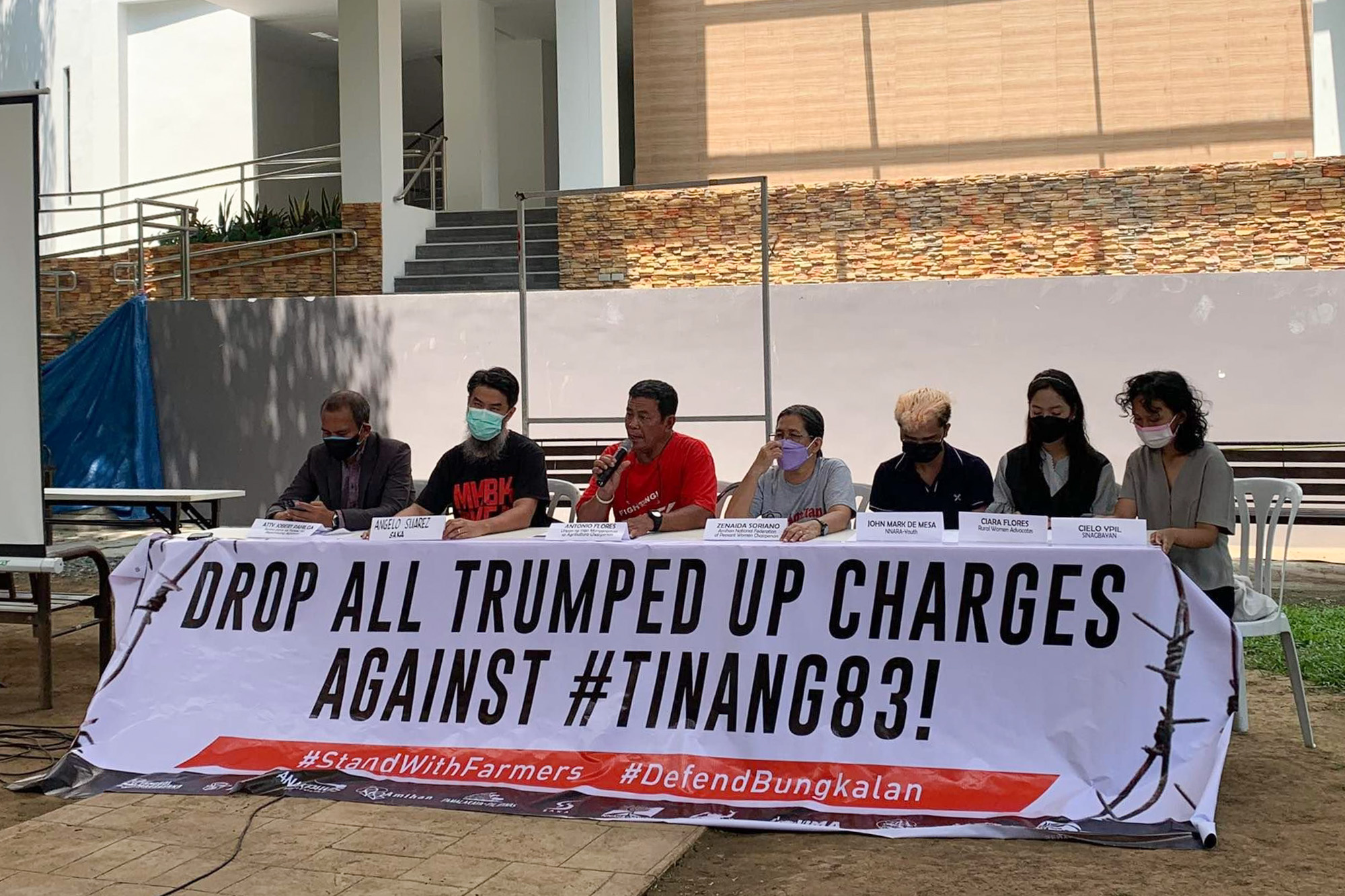News
Artists and Farmers Arrested During Land Reform Protests


In the Philippines, a protest regarding the disputed ownership of agricultural land on June 9 led to the arrest of more than 90 farmers and land-reform advocates, including around 50 artists and cultural workers.
The protest took the form of a bungkalan, a collective land-cultivation activity, on the disputed 200-hectare land in Hacienda Tinang, a sugarcane plantation in the province of Tarlac. The act took place on the eve of the 34th anniversary of the Philippine government’s Comprehensive Agrarian Reform Program (CARP), designed to benefit Filipino farmers through land redistribution.
According to the urban poor group Kadamay, the cultivation activity was to show solidarity with farmers who should have been beneficiaries of CARP but have been struggling to claim Hacienda Tinang after it was distributed to them in 1995 by the Department of Agrarian Reform. Another group, Anakpawis, which advocates for farmers’ rights and other marginalized groups, added that while the Department decided to install the farmers as legitimate recipients of the Hacienda Tinang in 2018, the decision was never enforced.
More than 20 fully armed police officers, accompanied by mayor-elect Noel Villanueva, arrested the farmers and advocates when they were tilling a piece of land at Hacienda Tinang. At least 87 of those arrested were charged with malicious mischief and obstruction of justice without warrant for “demolish[ing] the sugarcane plantation owned by Agriculture Cooperative,” according to the police report.
Some arrestees were released on June 10 while 83 people were detained for three days until their release on bail on June 12. Each individual facing complaints of illegal assembly and malicious mischief paid PHP 14,500 (USD 272) for their bail and processing fee, which amounted to PHP 1.2 million (USD 22,490). At least 45 artists and cultural workers held in custody are part of the Sama-Samang Artista para sa Kilusang Agraryo (SAKA, Artists’ Alliance for Genuine Agrarian Reform), who called for bail donations on June 10. In a Facebook post, they wrote, “Expressing solidarity with farmers and grounding our practice on peasant communities’ agricultural production has never been terrorism in any way or form.” After the bail, with a follow-up post on June 13, they continued to call for condemnation of the mass arrest and inhumane treatments of detainees in the detention cell, as well as donations to cover the legal fees of the future hearings of the case.
Manila-based artist Cian Dayrit, known for his sociopolitically inclined multimedia practice, was among those arrested for their participation in the bungkalan. “I was part of a larger group of artists, researchers, and students.” Dayrit shared with ArtAsiaPacific, “We were there to support land cultivation of the agrarian-reform beneficiaries. It was a peaceful activity attended by many volunteers showing support for food security and land distribution to the community. Our actions were anchored on [a] legal basis that the land we were working did in fact belong to the coop. We were forcibly taken and detained for four days. Though we are free on bail, the charges set upon us have not been dropped as of yet. We are calling on everyone's support to amplify the calls to drop all charges, stop the attacks on farmers and advocates and distribute the land to the tillers.”
For those partaking in the bungkalan, the arrests were lawless as the farmers and their supporters were simply exercising their right to cultivate the land. "We are the legitimate beneficiary of the land. All we want is to clear the sugarcane field so that we can grow vegetables for our families to eat,” shared Felino Cunanan Jr., a leader of a local group that represents the agrarian-reform beneficiaries. Yet the police claimed that these farmers do not have “proper papers” to show that their ownership of Hacienda Tinang is legitimate.
On June 13, the Department of Agrarian Reform pledged to provide certification to 13 farmers involved and arrested in the protest, and will begin the process of qualifying them as beneficiaries of the disputed land. On the same day, agrarian-reform secretary Bernie Cruz criticized the activists for using farmers to push their political agenda. “There were students, foreigners, artists who were arrested, so that means others rode on the issue, instigated and organized,” he said in an interview with Rappler.
Nicole M. Nepomuceno is ArtAsiaPacific’s assistant editor.







